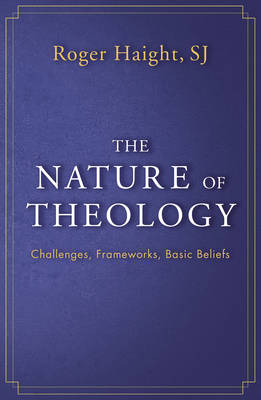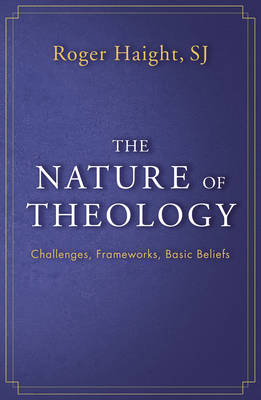
Door een staking bij bpost kan je online bestelling op dit moment iets langer onderweg zijn dan voorzien. Dringend iets nodig? Onze winkels ontvangen jou met open armen!
- Afhalen na 1 uur in een winkel met voorraad
- Gratis thuislevering in België vanaf € 30
- Ruim aanbod met 7 miljoen producten
Door een staking bij bpost kan je online bestelling op dit moment iets langer onderweg zijn dan voorzien. Dringend iets nodig? Onze winkels ontvangen jou met open armen!
- Afhalen na 1 uur in een winkel met voorraad
- Gratis thuislevering in België vanaf € 30
- Ruim aanbod met 7 miljoen producten
Zoeken
The Nature of Theology: Challenges, Frameworks, Basic Beliefs
Challenges, Frameworks, Basic Beliefs
Roger Haight
Paperback | Engels
€ 37,45
+ 74 punten
Omschrijving
Discusses the discipline of theology in light of our current situation. As with his 1990 book Dynamics of Theology, he is still seeking to clarify what the academic study of Christian theology is about, but here he is taking into account significant shifts in the context of theology during the past three decades. These include: the dialogue with science; extensive development of liberation theologies; public acceptance of religious pluralism; and increased scrutiny on Christology as a result of the rise of religious pluralism. He will thus ask questions such as: How can theology maintain a real authority in its exchange with scientific culture and a critically informed political culture? If religious pluralism means one religious tradition can learn from other religions, how does theology justify the particular claims of its tradition? If theology arises out of a faith community, how does it retain its autonomy as an academic discipline relative to the more objective disciplines of social sciences and religious studies?
Specificaties
Betrokkenen
- Auteur(s):
- Uitgeverij:
Inhoud
- Aantal bladzijden:
- 184
- Taal:
- Engels
Eigenschappen
- Productcode (EAN):
- 9781626984882
- Verschijningsdatum:
- 8/09/2022
- Uitvoering:
- Paperback
- Formaat:
- Trade paperback (VS)
- Afmetingen:
- 135 mm x 208 mm
- Gewicht:
- 204 g

Alleen bij Standaard Boekhandel
+ 74 punten op je klantenkaart van Standaard Boekhandel
Beoordelingen
We publiceren alleen reviews die voldoen aan de voorwaarden voor reviews. Bekijk onze voorwaarden voor reviews.











